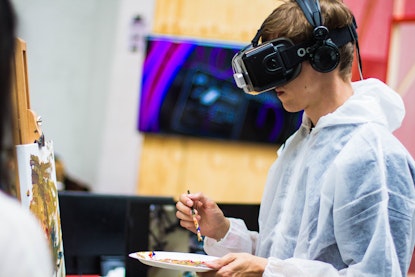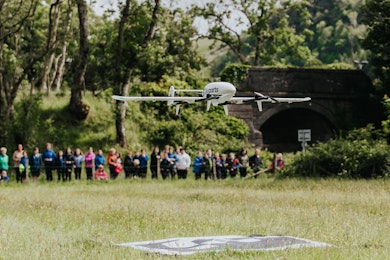Grassroots tech movement arises from the Corona crisis
A new movement is attempting to address Corona-related challenges in affected communities with the help of technology. Behind the project is a group of entrepreneurs who will match problems with problem solvers

As the number of people infected with the new Coronavirus rises worldwide, many are finding themselves quarantined at home. The situation has inspired a group of entrepreneurs, who are currently working on a new platform to help solve the problems that will arise in the aftermath of this crisis, using technology.
Having started just last week, the CoronaTech project is ready for launch. The project has built a platform that brings people together to examine corona-related problems and create tech solutions.
“It is particularly during crises that innovation thrives. If we are to solve the current crisis and the problems it creates, we need to think innovatively and move quickly,” says the project’s backer, entrepreneur Esben Gadsbøll.
Despite its young age, volunteers have joined en masse:
“Right now, we have over 15 volunteers helping. Several of them work more than full-time on CoronaTech. Others take care of their work and volunteer after-hours. Currently, we have 50 contributors on the waiting list who are just waiting for us to get them started. The list is growing by the hour,” Gadsbøll says.
The CoronaTech movement has built a digital platform where people can work together to solve challenges using technology. The problems can be just about anything but must be real-life Corona-related issues that can be solved using technology.
Apps and unemployed chefs
As an example, Gadsbøll mentions an app idea that connects elderly or quarantined people with healthy individuals who can help with tasks such as shopping or errands. Or perhaps a service where laid-off chefs can lend a hand by using empty kitchens, such as those in closed schools, to cook meals for people under quarantine.
“We are building the platform with great urgency, but the platform is not the most important part. The most important thing is that we get people connected so that they can create things together and solve specific problems,” says Gadsbøll.
Other examples of technological solutions to the problems faced by small businesses include digital prepaid vouchers where customers can pre-purchase a number of bookings online. This would help businesses such as hairdressers or restaurants with their immediate liquidity issues.
Or a video conferencing solution for lectures, where people can be divided up into small working groups to discuss the topic further after the lecture – even if they are sitting in their living rooms.
The point of the CoronaTech movement is that issues and challenges like these can be explored, and contributors on the platform will form working groups to debate and develop tech solutions.
No money
Gadsbøll explains that there is currently no funding for the project. Nobody will turn a profit for anything created on the platform. On the other hand, it is too soon to tell if some of the projects will eventually transition into actual start-up projects, creating jobs. But for now, that is not the purpose.
The project is currently limited to Denmark, but the hope is that the project will grow to include other Nordic countries, and perhaps inspire others worldwide.
“We’ve started in Danish. We have to create something that we know works before we expand. We’re not interested in hyping ourselves, but rather spreading the word amongst effective problem solvers. And we hope to be able to attract those who want to spend time creating solutions that will help small shops, for example,” Gadsbøll explains.
The project is already up and running and can be found on Linkedin, as well as on its website, coronatech.org. The team behind the CoronaTech movement continues to grow but is currently composed of Esben Gadsbøll, Jesper Kring, Anders Brandt, Aram Ostadian-Binai, Katrine Arevad, Patricia Weber, Anders Brogaard, and Thomas Helms in San Francisco.
Of course, Digital Hub Denmark supports Coronatech. Our Head of Digital Platforms, Nicolaj Christensen, is allocated full time on the projects for the next few weeks. We encourage others to join in.









